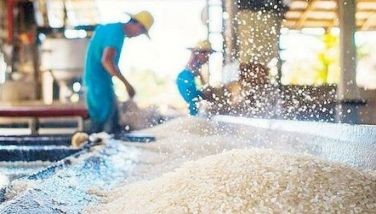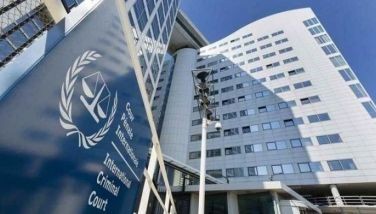Positive news from Negros

Two positive items of information came out of Negros Occidental this week. The first might become a breakthrough in the struggle to end impunity on extrajudicial killings of political activists; the other piece of news is about a global tribute to grassroots workers’ initiative and innovation. Both need public support to be fulfilled.
The first: After almost 10 years and 1,205 extrajudicial killings (EJKs), the climate of impunity under which no perpetrator has been arrested and punished may finally be broken, if not ended. In the 1,200th incident that happened in Himamaylan City last June, two men identified with the Philippine Army have been arrested, charged, and arraigned for murder. Trial will begin October 12.
Last Wednesday I went to Himamaylan to observe the pretrial hearing of the case at the Regional Trial Court Branch 55, presided over by Judge Nilo M. Sarsaba. It was my third trip there, all related to the case, after the June 14 killing of Benjamin Bayles, a parish worker of the Philippine Independent Church (IFI) and Bayan Muna coordinator. At his interment and at a protest march-rally two months later, I was moved by the tributes that were heaped on Bayles, and by the strong cry for justice uttered by Bishop Felomino Ang of the IFI Negros diocese.
There was ground to protest; the Himamaylan police had shown little interest to investigate deeper. On August 30, Bishop Ang wrote to President Aquino urging the new administration to solve the Bayles case and bring justice to all victims of human rights violations, calling upon him to “end this disgusting spate of terror and impunity.”
Largely because of the general outcry as well as pressure by human rights lawyers, the provincial prosecutor’s office filed the murder charge. The accused, represented by lawyers who have handled cases for the military in the province, questioned the RTC jurisdiction and filed separate motions to quash the case and for bail. On September 13 Judge Sarsaba denied the motion to quash and ordered the accused to be held in jail. He directed the prosecution “to present evidence to prove that evidence of guilt against the accused is strong” (since bail may be granted only if the evidence is weak).
Here’s a fast look at the case. The accused gave their names as Roger Bahon and Ronnie Caurino. Less than an hour after Bayles was shot dead by two motorcycle-riding men along the highway leading to Kabangkalan, these two were intercepted and arrested aboard a motorcycle by the Kabangkalan police, alerted by the Himamaylan police. Each man yielded a .45-caliber pistol; both claimed they belonged to the Philippine Army. After they were turned over to the Himamaylan police an eyewitness to the crime identified them as those who repeatedly shot Bayles.
The Philippine Army denied that the two men belonged to its ranks. Bahon then claimed to be a fisherman from Cauayan town, while Caurino claimed to be a driver from Sipalay City.
But in his letter to President Aquino, Bishop Ang disclosed the following: 1) Roger Bahon’s true identity is Private lst Class Reygine Laus of the 61st IB, PA, from Bgy Bunga, Mambusao, Capiz; 2) Caurino is also PFC in the 61st IB, PA; 3) the two belonged to an Army unit assigned in Bgy Basak, Himamaylan for three months during the 2010 election campaign period and were known to the people there; 4) the motorcycle used in the killing was registered in the name of Reygine Laus on Aug. 9, 2009, bought from a store in Sipalay City; and 5) Col. Ricardo Bayhon, 61st IB commanding officer, and his intelligence officer, Lt. Vida, reportedly talked to the store manager not to disclose the motorcycle’s record of purchase.
Although he urged President Aquino to verify the information, Bishop Ang seemed to be so certain of his facts as to demand the immediate suspension and investigation of Col. Bayhon, Lt. Vida, and the Himamaylan police chief, with international observers invited to monitor the probe.
The bishop and the “Justice for Bayles, Justice for all Victims of Human Rights Violations” movement want to prevent any action by the state security forces that may derail, or frustrate, the quest for justice. They deserve full support.
The other good news: the British Broadcasting Co. recently announced that the Alternative Indigenous Development Foundation Inc. (AIDFI) based in Bgy Mansilingan, Bacolod City, has been chosen as one of 12 finalists, out of 800 nominations worldwide, in the BBC World Challenge 2010 award for a project of enterprise and innovation at the grassroots level.
AIDFI was nominated for its perfected model of the hydraulic ram pump, which pumps water to high elevation without using fuel or electricity, powered only by river flow. I have seen the model run, amazingly simple yet efficient. It has been installed in 170 villages in the Philippines and abroad.
To win, a nominee must be voted publicly online on www.theworld-challenge.com.uk from Sept. 27 to Nov. 12. Let’s help AIDFI get the plum it deserves!
- Latest
- Trending

























